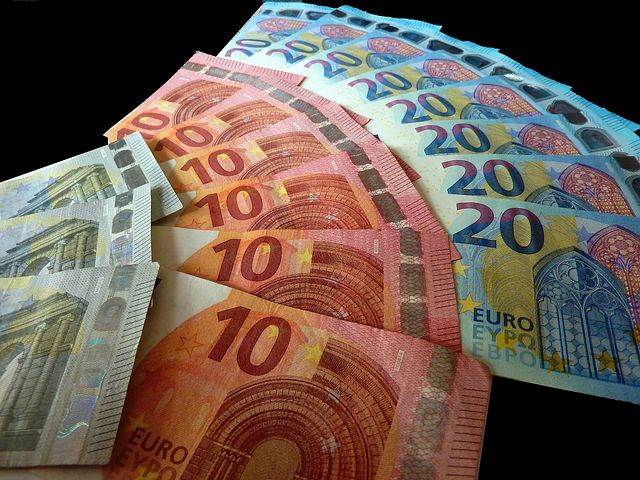 So far this week the Euro has advanced 1.05 percent against the US dollar, as enthusiasm for the future of the Eurozone economy took over the market sentiment.
So far this week the Euro has advanced 1.05 percent against the US dollar, as enthusiasm for the future of the Eurozone economy took over the market sentiment.
Many attribute this increase of value to the fact that the Federal Reserve is quickly increasing the dollar supply, which doesn't favor the performance of the Greenback.
On Monday, the markets learned that the preliminary European Commission's consumer confidence index went up to -14.7 in June, after being at -18.8 on the previous month. This shows a significant improvement in consumer confidence, beating the analysts' expectations, as they foresaw it was going to increase to -15.
The European Central Bank's Vice President, Luis de Guindos told a German newspaper that a pan-European fiscal reaction is needed to face the effects of the coronavirus economic crisis. He also praised the German economic stimulus program, adding that the country has the financial room to quickly react to the crisis.
Yesterday the markets learned that June's IHS Markit Manufacturing PMI for the Eurozone advanced to 46.9 from the previous month's 39.4. Conversely, the preliminary Services PMI climbed to 47.3 in June, after being at 30.5 in May. The composite index, which accounts for the private sector activity, stood at 47.5, rising from the previous month's figure, which stood at 31.9. It must be said that despite showing a significant improvement in the economic activity, the figures still signal a contraction, though a milder one.
IHS Markit's chief economist, Chris Williamson explained that despite the declines, output and demand are no longer collapsing. He also added that the easing of the economic lockdown restrictions feeds the expectations for the end of the current economic downturn.
Germany's IFO business climate index rose to 86.2 in June, from the previous month's 79.5. According to Klaus Wohlrabe, an economist at the IFO Institute, the German economy should return to a growth path in the third quarter, right after experiment a significant contraction in Q2.
Despite the good news, the European Central Bank chief economist, Philip Lane attempted to hinder the enthusiasm, saying that even though the near-term indices are showing a substantial advance in economic terms, such data is not good in terms of indicating the path that the economy is taking in the long-run. Lane added that coming back to pre-crisis levels will take a lot of time.
“Income losses and precautionary savings continue to weigh on consumption,” he explained, “Likewise, weak demand, continued supply constraints, and ongoing social distancing restrictions are hampering the normalization of economic activity,” he added.
Commenting about the EU recovery package, Lane explained that the direction of the ongoing talks will determine how quickly consumer confidence will rebound, and the future path of the economy
“The outcome of negotiations about the EU recovery fund will be an important factor in determining the future path for the euro area economy,” he continued.
Regarding the inflation levels, Lane commented that thanks to the ECB measures (together with the fiscal measures) the chances of having negative inflation are lower.
After its last meeting, the European Central Bank announced its decision to leave the interest rates on hold, deciding to expand its pandemic emergency support program instead. The decision is understandable given the fact that the current reference cash rate stands at 0 percent.
Regarding the ECB's role in the current crisis, Lane highlighted that the bank is ready to do whatever is needed to aid the Eurozone with its economic recovery, including cutting the interest rates further. Nevertheless, he remarked that at the moment there is a strong preference for expanding the bank's asset purchase program.
Fears for a second wave of the coronavirus, which at the moment has infected around 2,351,253 individuals in Europe and killed 188,837, and uncertainty about the European recovery fund may weigh in on the Euro's performance in the future. So it shouldn't be surprising to see a lot of volatility in this market.
